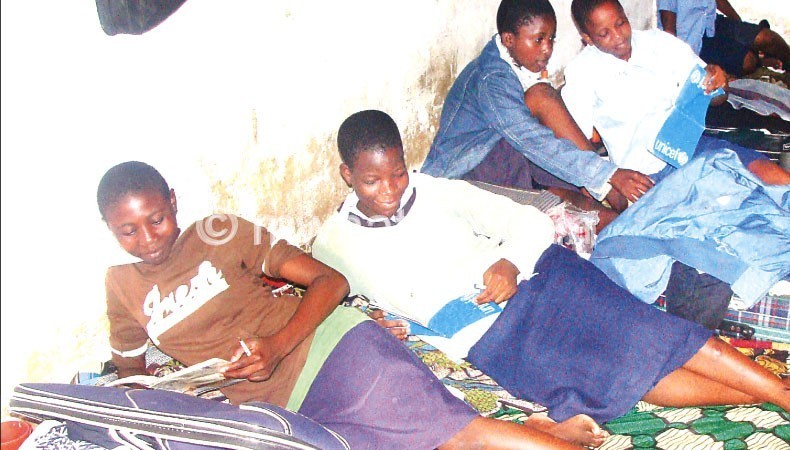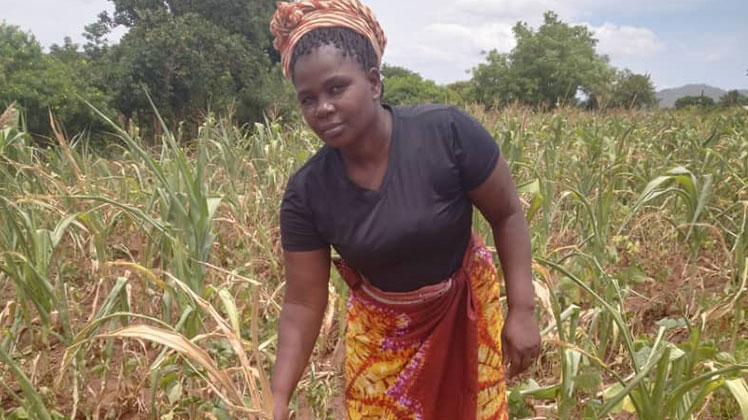‘Marriage can wait, education cannot’
At 14, some girls dream of becoming highly educated and secure a bright future, while others are tempted by material things and end up in early marriages.
Such is the story of Everess Folomani who, at that tender age, dropped out of school and got married. Now 17, Everess was in Form Two at Kanyenda Secondary School in Ntchisi when she left school.

The young girl, who comes from Sambani Village, Traditional Authority (T/A) Dzoole in Dowa, eloped with a man from T/A Msakambewa in the same district, leaving her parents worried. She says she had no dream about her future in as far as her education was concerned.
“All my friends were talking about marriage, saying education was a waste of time. They started getting married one by one. I thought this was the way to go in life. I decided to follow suit by getting married regardless of the fact that my parents were against it,” she says.
It took Everess one month to realise that married life was not like she was told in school.
“Almost every night, my husband would beat me up for no apparent reason. I was not happy at all,” she says.
While her age mates were going to school every morning, Everess was preparing breakfast for her abusive husband. She started having regrets.
“The problems I encountered with my husband made me realise that I was not ready for marriage. Eventually, I left my marital home and returned to my parents,” says Everess, who now dreams of becoming a nurse.
The now ambitious girl is back at Kanyenda Secondary School doing Form Four. Unlike two years ago before she got married, Everess is now associating with what she calls good and ambitious friends.
Her dreams include studying at university of and becoming a nurse. She says she is working hard because she has realised that the only solution to her poverty is good education.
“Clever girls avoid early marriage while foolish ones rush into marriage only to get abused,” she says.
Everess says despite the challenges that schools face in rural areas such as inadequate teachers and learning materials, she is pressing on for a brighter future.
“Education remains the only key to a good future and solution to our problems as girls. There is need for more resources so that girls do well in school,” she says.
Her words echo what United Nations education activist Malala Yousafzai said in July 2013. Malala, who survived a brutal attack by the Taliban in her native Pakistan on her way back from school declared: “One child, one teacher, one pen and one book can change the world. Education is the solution.”
According to the Southern Africa Development Community (Sadc) 2013 Gender Protocol Barometer released by Gender Links, Malawi is one of the six Sadc countries that have achieved 50 percent of girls in primary school.
However, the number of girls who finish secondary education is lower than this. Early marriage is one of the factors that contribute to the declining number of girls at secondary school level.
According to the Gender Links’ barometer, 50 percent of all pupils in primary schools in Malawi are girls but only 45 percent reach secondary school, while 40 percent reach tertiary education.
“Statistics show fewer girls than boys in secondary school. Early marriage is a serious problem; most girls marry before reaching Form Four,” reads the barometer in part.
No wonder Ministry of Gender, Children and Social Welfare last year embarked on a campaign to raise the marriage age from 15 to 18.
Principal Secretary in the ministry Dr. Mary Shawa says there is need to prevent girls from early marriages.
“We want more girls to stay in school. When a girl child is educated we are assured that Malawi will have a good future. When a woman is educated, it helps her to be financially independent because she can get employed or run a business successfully. This will also prevent her from being a victim of gender-based violence,” says Shawa.
Everess’s return to school is one of the successful stories by Kanyenda Mother Group which aims at rescuing girls from early marriages in villages of the southern part of Ntchisi as well as Dowa.
One of the members of the Mother Group, Veronica Mkhatcha, says they have so far rescued five girls from early marriages.
Mkhatcha says when Everess realised her mistake, she told her mother that she wanted to return to school but her mother refused.
Everess confirms this: “My mother said there was no way I could not return to school because marriage was what I chose.”
Thus, the Mother Group intervened.
“We approached Everess’ parents and asked them to let their daughter go back to school,” says Mkhutcha.
Everess is hopeful that someday she will be wearing nurse’s uniform. She first saw a nurse when she sought medical treatment at Ntchisi District Hospital.
“The nurse treated me well and I made a decision to become a nurse,” says the future nurse.





